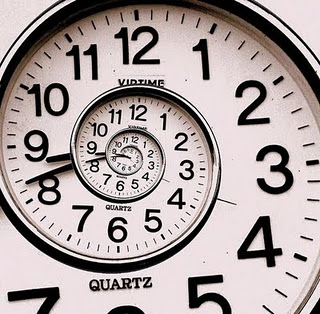 Sin
Sin Sinners in the Hands of Willy Wonka
 Thursday, February 23, 2012 at 12:33AM
Thursday, February 23, 2012 at 12:33AM  Between the efforts of Johnny Depp, Gene Wilder, and Roald Dahl most of us know that five children entered Willy Wonka’s chocolate factory one cold British morning and experienced a trial like no other. Before the day’s end four of the children were weighed, measured, and found wanting--their shortcomings revealed to all. The fifth child, Charlie Bucket, was proven kind and virtuous, and received a reward beyond all reason.
Between the efforts of Johnny Depp, Gene Wilder, and Roald Dahl most of us know that five children entered Willy Wonka’s chocolate factory one cold British morning and experienced a trial like no other. Before the day’s end four of the children were weighed, measured, and found wanting--their shortcomings revealed to all. The fifth child, Charlie Bucket, was proven kind and virtuous, and received a reward beyond all reason.
The four rejected children were spoiled, each in their own way. They had “gone bad” the way a peach spoils when left on the kitchen counter too long.
In the language of the scripture, these children were sinners.
Wait--did you recoil when you encountered the word sinner? “Oh no!” you protest, “The children had gone bad because their parents had failed them.”
- Augustus Gloop had been over-fed by a doting mother until he could not control his appetite;
- Violet Beauregard had been indulged by parents living vicariously through their child;
- Veruca Salt was a brat because her father had never told her “no;”
- Mike Teavee was an odious, unruly boy because his parents had surrendered him to the electronic babysitter.
No reader (or viewer) could fault Mr. Wonka for separating the children from the factory: he did not give them the chocolate factory because it would have destroyed the children completely and the children would have damaged the factory--along with those who lived and worked there.
These children were, in the very words of Roald Dahl, “spoiled.” They were not rejected because they broke the house rules, they were sent away because their child-like nature had been corrupted into monstrous distortions of their true potential, their true calling. Willy Wonka did not follow the children about the factory, rule-book in hand, eager to cite them for any violation. He did not enforce regulations or demand perfection. He simply wanted to give away his creation to those capable of stewarding the factory by the virtue of their heart, a heart in tune with the maker.
The word spoiled is useful image for understanding sin. The harm of sin is not lawbreaking, but that it mars the image of God in us. Sin spoils us for our true purpose. Sin is not a failure of effort or will, it is a failure of our true nature. Sin is bad because it is bad for us, and it makes us bad for those around us. We have, quite literally “gone bad,” no longer fit for our highest and best calling. To step into paradise as spoiled brats would ruin us further and perhaps ruin the factory as well.
When we are spoiled (whether by our parents or our own choices) we lose the ability to see God’s creation and purpose for what it really is: an invitation to come and live with him forever. We are created to live in harmony with our Maker, but how can we do so if we think him a tyrant, and ogre, or a nit-picking perfectionist? We were created to live in a garden tailored precisely to our needs, but how can we do so if we think our greatest need is to satisfy ourselves at the expense of the garden or our neighbors? He is too good a Father to leave us uncorrected: he wants to make us fit for home again.
When followers of Jesus persist in seeing sin as a violation of the rules they miss the offer of abundant life. The Father is not fastidious record-keeper, charting our performance moment by moment. He is, however, a wise caretaker, both of our souls and his world. He longs to free us from sin because it will also release us into a freedom unbefore imagined. He calls us to the perfection of completion that we might drink deeply of the river of life.
James, the brother of Jesus, assures us that “the wisdom that comes from heaven is first of all pure; then peace-loving, considerate, submissive, full of mercy and good fruit, impartial and sincere.” It is the wisdom of obedience: not score-keeping obedience, but obedience that leads to purity and peace.
There is no shortage of golden tickets to admit us to the factory. Our greatest need is to enter unspoiled or renewed, so we can live there forever.
Meditation: God's Right Time, and Ours
 Monday, February 20, 2012 at 01:47AM
Monday, February 20, 2012 at 01:47AM  "You see, at just the right time, when we were still powerless, Christ died for the ungodly. Very rarely will anyone die for a righteous man, though for a good man someone might possibly dare to die. But God demonstrates his own love for us in this: While we were still sinners, Christ died for us." (Romans 5: 6 – 8)
"You see, at just the right time, when we were still powerless, Christ died for the ungodly. Very rarely will anyone die for a righteous man, though for a good man someone might possibly dare to die. But God demonstrates his own love for us in this: While we were still sinners, Christ died for us." (Romans 5: 6 – 8)
Sometimes the little words slip past us: water through our fingers. Have you ever noticed these words: “at just the right time.” They reveal the Father’s idea of the right time is radically different from ours.
These three Spirit-inspired verses from Paul’s letter show us that God’s view of the right time is when we were powerless. Even if we had wanted to return to the Creator, we were unable.
The whole world had rebelled against God. His voice had gone out to all nations and through all generations, calling us home. The Creator never stopped extending the invitation to return. He revealed himself in every morning mist, and in the cloud of stars we call the Milky Way. To each generation he sent visionaries and poets, describing the beauty of life lived in harmony with the Creator. But we would have none of it. We were unwilling, and unable, to see or hear.
The lesson for disciples is not simply that God is gracious (though he is). Nor is it that he accomplishes redemption when we cannot (he does). His lesson is that the right time to act is when others cannot. In doing so he has set an example for us to follow. How often do we wait for others to meet us halfway?
It seems so logical: those who need help should provide a “show of good faith.” But when we believe this logic we walk away from people in need—materially, emotionally, spiritually—because we think we aren’t they aren’t interested in helping themselves. The Father required no show of good faith: why do we?
One of the lessons of the gospel is that God acted first, without any guarantee his extravagant love would be received. He risked rejection because action had to be taken. This week’s meditation asks if we have the heart to do the same.
The Parable of the Pushy Fireman
 Saturday, February 18, 2012 at 09:30AM
Saturday, February 18, 2012 at 09:30AM  When I was a young boy Josué De La Cruz saved my life. My third-floor apartment on the northwest side of Chicago was fully involved in flames. The Latino firefighter crawled up the steps beneath the smoke, through the fire, and carried me to safety. I wouldn’t be alive today if it wasn’t for him.
When I was a young boy Josué De La Cruz saved my life. My third-floor apartment on the northwest side of Chicago was fully involved in flames. The Latino firefighter crawled up the steps beneath the smoke, through the fire, and carried me to safety. I wouldn’t be alive today if it wasn’t for him.
He visited me in the hospital the next day. I thanked him for his courage and sacrifice. He told me he was happy to make a difference. We chatted for a while. His Spanish accent reminded me that he was from a completely different culture than mine. It was hard to understand him sometimes, but I was grateful. I fell asleep and he was gone.
My family found a new place to live but I included Josué in my prayers every night--for a couple of months at least. Eventually school took all my attention and life returned to normal. I was surprised five years later when Josué turned up at my college dorm one night. I was coming back to the dorm very late--trying not to attract the attention of the Resident Assistant.
“Man,” he said with that accent. “You know it’s really dangerous to drive home in your condition. You should be more careful.”
I was embarrassed. “Yeah, I guess so.” I shoved my hand forward to shake his. “Hey man, thanks for pulling me out of that fire back then.”
“No problem--that’s over. Listen, I brought you some money for textbooks. Take care for yourself.”
It was strange, him showing up that night. I really wasn’t thinking straight. When I woke up the next morning it was hard to tell where the night had ended and where my dreams began. But I did have $100 in the pocket of my jeans.
I was nearly thirty when he turned up again. I’d been married for seven years. My wife and I had one kid and another of the way. I had taken a job working for her father. It wasn’t the life I wanted but with another kid on the way paying the bills was a big deal. Still, the job sucked and I wasn’t happy. I came home from work and there was Josué, the firefighter who had saved my life, sitting on my front step, petting the family dog.
“Dude, what are you doing here?”
“Amigo, it’s so good to see you again. I just wanted you to know I was thinking about you.”
That seemed really strange to hear. All I could manage was an awkward “Thanks.”
“You know,” he said, looking up from the dog. “You ought to cut your wife a little slack. It isn’t easy raising one kid while she’s baking another.”
“Well my job ain’t so hot either. Did you want something?” I asked.
He ignored the question. “I could help you with that if you want.”
I laughed. “Thanks. I’m a little old for the Fire Academy, don’t you think?” I stepped past him an went to the door. “Thanks for stopping by, though.” Later I found a gift card to Applebee’s right where he had been sitting. There was a post-it note where he had scribbled, Take your wife out to dinner tonight.
I don’t know: maybe Josué had moved into my neighborhood because he began to pop up at the most random times and places. It began to get a little creepy. One time he was in the booth behind me and my friend at the pancake house.
“Hey man,” he said with that accent. “Have you been putting on some weight?”
“Maybe. You still look pretty fit.” It was true, I had to admit it.
“I’m not trying to bust your hump,” he said. “I just want to see you stay healthy and live well.”
I didn’t feel scolded. Especially because he waited for my buddy to hit the restroom before he spoke to me. “Yeah. Thanks. I’ll work on that.” When my friend and I left we found that Josué had already paid the tab. It went on like this for the next few years. Josué would turn up, offer his opinion on something or other, and always do something nice for me.
Then one afternoon he was outside my workplace. I had bolted from working for my father-in-law, but three jobs later I was going nowhere fast. Life sucked. My wife and kids were strangers to me, and I was thinking of getting in the car and just driving.
“My friend,” Josué said gently. “Don’t do this thing.”
I was startled. Did he know my thoughts? “What thing?”
“Times are tough,” he said. “I get it. Let me help you learn how to live.”
Finally I’d had enough of these strange appearances. “Listen, Josué. It’s been twenty years since you saved me from the fire. What gives you the right to show up and tell me what to do?”
“What good was saving your life if you don’t know how to live it?” he answered. “I went into your apartment that day to change your life, not just save it.”
“Really?” I demanded. “Well, I needed someone to save me--not someone to run my life. What gives you the right?”
“I am Josué De La Cruz.” He stood tall and his voice swelled with strength. And as he said the words he began to change: his face and clothes became white--dazzling beyond any brightness on Earth.
I shielded my eyes and heard thunder from the cloudless sky. In the thunder I thought I heard a voice. “This is my son. Listen to him!”
And then, in a moment the day returned, and the sunshine seemed less bright. Josué put his arm on my shoulder and said, “Come to me. Get away with me and you'll recover your life. I'll show you how to take a real rest. Walk with me and work with me—watch how I do it. That’s why I saved you that day.”
Four Reasons God Doesn't Need Me to be His Cop
 Thursday, February 16, 2012 at 12:43AM
Thursday, February 16, 2012 at 12:43AM  My daughter saves her deepest theological questions for bedtime. She doesn’t give a rip about theology, but she cares deeply about delaying bedtime. If Daddy is foolish enough to take the bait on Who made God-type questions, she wins. Ever though her greatest need is rest, she thinks her late-night allies are unsolvable religious questions. In the end, everyone ends up sleepy and confused.
My daughter saves her deepest theological questions for bedtime. She doesn’t give a rip about theology, but she cares deeply about delaying bedtime. If Daddy is foolish enough to take the bait on Who made God-type questions, she wins. Ever though her greatest need is rest, she thinks her late-night allies are unsolvable religious questions. In the end, everyone ends up sleepy and confused.
So it is with following Jesus. Let’s talk about theology; let’s talk about church; let’s crusade against the high-profile fools of Christendom and expose them for charlatans--in fact, let’s do anything other than take the yoke of discipleship. Like stupid trolls arguing all night long about how best to cook a hobbit, we will be surprised when the morning takes us all.
I’m just wondering: have you ever seen anyone win a religious argument? The only reason a crowd gathers is simply to watch a good fight, never mind who wins.
The Apostle Paul, that great intellect of the first generation church, was capable of winning nearly any argument but with each passing year he lost interest in being God’s cop gave himself more and more to being God’s herald. Consider this amazing trope from his letter to the Philippians:
Now I want you to know, brothers, that what has happened to me has really served to advance the gospel. As a result, it has become clear throughout the whole palace guard and to everyone else that I am in chains for Christ. Because of my chains, most of the brothers in the Lord have been encouraged to speak the word of God more courageously and fearlessly.
It is true that some preach Christ out of envy and rivalry, but others out of goodwill. The latter do so in love, knowing that I am put here for the defense of the gospel. The former preach Christ out of selfish ambition, not sincerely, supposing that they can stir up trouble for me while I am in chains. But what does it matter? The important thing is that in every way, whether from false motives or true, Christ is preached. And because of this I rejoice. ~ Philippians 1: 12-18
He actually rejoiced even as others tried to make his life more complicated! This passage is filled with marvels--and instruction--for every student of Jesus. Paul, thrown in prison because he declared the gospel, looks out from his house arrest in Rome to see and hear a wide variety of evangelists continuing his work. He knows that some are simply trying to pour gas on the fire of his persecution. These interlopers actually mean to do him harm, but Paul doesn’t care. He focuses on the gospel and delights that the message goes forth. Could you do that? Could you ignore your enemies and celebrate the sound of the Kingdom--even if it is sounded off-key?
If the Apostle Paul learned how to ignore the fools and focus on the image of Christ how much more should we? Just after giving these critics his blessing, Paul sings the hymn to the lowliness of his King, and the exaltation that is sure to follow. Paul demonstrates the value of devotion to the Lord, not devotion to the cause--and there is a difference. From his chains in Rome, Paul gives us at least four reasons he doesn't take the bait:
1). When we’re devoted to the cause we can forget the King. Paul stayed focused on Jesus and cared nothing for the hypocrisy of his critics. Paul valued the Lord’s opinion over the judgment of others.
2). When we’re devoted to the cause our agenda is determined by the opposition. In his day (and in ours) there are too many mistakes to correct--why let their errors define your message? Instead, Paul refused to allow the foolishness of others draw him in to foolish controversy. He preached Jesus the King.
3). When we’re focused on the cause we will embrace nearly any platform that gains attention, because we come to believe the ends justify the means. Paul rejoiced in his chains because he saw an obscure entry into the very palace guard of Rome.
4). When we’re focused on the cause we’re concerned with changing others--whether or not we have ever changed ourselves. Yet the master plan of of the Master Himself was to change us from the inside out.
Like my little girl trying to avoid the school-night bedtime, we avoid the greatest obstacle to the Kingdom’s progress: ourselves--our actions, our behavior, our pursuit of Christlikeness. With each passing year in ministry Paul trusted that Jesus was able to police the church. He traded in his badge and took up the servant’s towel. And strangely, the gospel of the Kingdom grew and spread--even without the benefit of the orthodoxy patrol.
Meditation: Go Crazy ~ Order the Happy Meal
 Monday, February 13, 2012 at 12:00AM
Monday, February 13, 2012 at 12:00AM  Following Jesus sets us up for hard work, right? Study, prayer, meditation, intentional action, and just hunker down to get serious with God. But wait--I thought Jesus said the yoke of discipleship would be easy. What about the light burden? You don’t always have to read N.T. Wright. Today, I’m up for a child-like grasp of the scripture. Sometimes simple is better. Consider this famous transformational passage:
Following Jesus sets us up for hard work, right? Study, prayer, meditation, intentional action, and just hunker down to get serious with God. But wait--I thought Jesus said the yoke of discipleship would be easy. What about the light burden? You don’t always have to read N.T. Wright. Today, I’m up for a child-like grasp of the scripture. Sometimes simple is better. Consider this famous transformational passage:
Therefore, I urge you, brothers, in view of God's mercy, to offer your bodies as living sacrifices, holy and pleasing to God--this is your spiritual act of worship. Do not conform any longer to the pattern of this world, but be transformed by the renewing of your mind. Then you will be able to test and approve what God's will is--his good, pleasing and perfect will. ~ Romans 12:1-2
I hereby declare this Lighten-Up Monday. Here are four invitations from this passage in Romans to enjoy his goodness by taking the easy yoke:
- Consider his mercies. What’s the use of climbing the mountain if you can’t take in the view? After the Apostle Paul has finished all the theological heavy-lifting of the first eleven chapters of Romans, he urges us to take a look at the mercies of God. Why not ask God to open your eyes to his mercies? They’re new every morning.
- Offer your body. He made our hands and called them good. They are holy when we set them aside for him. Sometimes it’s a good idea to simply hold our hands in front of the Almighty and say, “Here, use mine.”
- Become a non-conformist. Declare your independence from everyday patterns and change things up. Go crazy: order the Happy Meal. I know it’s trite, and clearly Paul’s point is much larger, but sometimes the simple act of breaking the patterns in our everyday lives can open us up to a new, Spirit-inspired perspective. You don’t have to channel your inner Will Ferrell, but there is something to be said for variety.
- Trade in your brain. The “renewing of your mind” doesn’t always have to come from deep study. Sometimes it can come from deep breathing. Make room for the Spirit: give your thoughts a rest. Have you ever noticed the phrase “be transformed” is passive?
This passage from Romans 12 has launched untold hard-working disciples--and seen eager disciples fall short of their best intentions. But no less an authority than Dallas Willard suggests we can be happy Students of Jesus: “The idea ‘no pain, no gain,’ well . . . that’s just something a football coach thought up.”
There. You can sweat it out tomorrow. Today? Let the wind of the Spirit mess up your hair.

